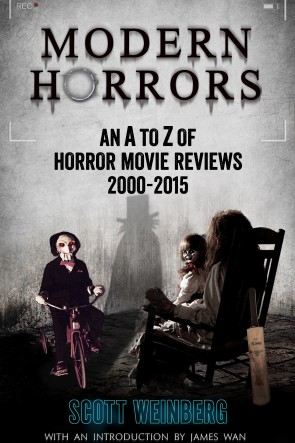Review: BLACKWOOD (2014){0}
One notable side effect of Hammer Films’ (very welcome) resurgence is that it seems to have inspired some indie filmmakers to consider “old-fashioned” a viable route. It usually takes a hit zombie film to spawn a lot of imitators, for example, and the same certainly holds true for any of the sub-genres found in the horror department. Hammer’s recent success with films like The Woman in Black has illustrated that there’s still a strong audience for old-school, Gothic, bump-in-the night stories, and that seems to be what has inspired the people behind Blackwood. If you’re interested in blood and guts, stalk and slash, or slice and dice, this is not the horror tale for you. But if you enjoy settling into a generally familiar tale that, thankfully, is pretty well told, there are some solid assets to be found here.
Blackwood is the story of Ben Marshall (Upstairs Downstairs‘ Ed Stoppard), a college professor with some anger issues who takes a job at a new university… only to realize that something is seriously amiss in his new home. But is Ben the victim of his own misfiring synapses… or is there something malevolent and supernatural afoot? The screenplay dutifully follows both options, allowing the viewer to keep guessing “A or B” right up until the big reveal. And while Blackwood‘s premise is rather familiar, much of the dialogue is better than one might expect.
It doesn’t hurt that lead actor Ed Stoppard does a fine job of portraying a nice guy as well as a frustrated and angry guy, plus Underworld alum Sophia Myles is on hand as his wife, and the lovely lady brings a welcome sense of calm and class to the proceedings. Paul Kaye (as a potentially devious priest) and Russell Tovey (as a creepy loner) add some nice color towards the ending, but most of Blackwood rests on the shoulders of Stoppard and Myles. Not much of their haunted house plight is all that new or novel, but it’s still impressive how such an oft-told tale can still please a viewer through simple assets like strong acting, handsome cinematography, and an old-fashioned sense of crafty restraint.
★★★
Scott Weinberg








